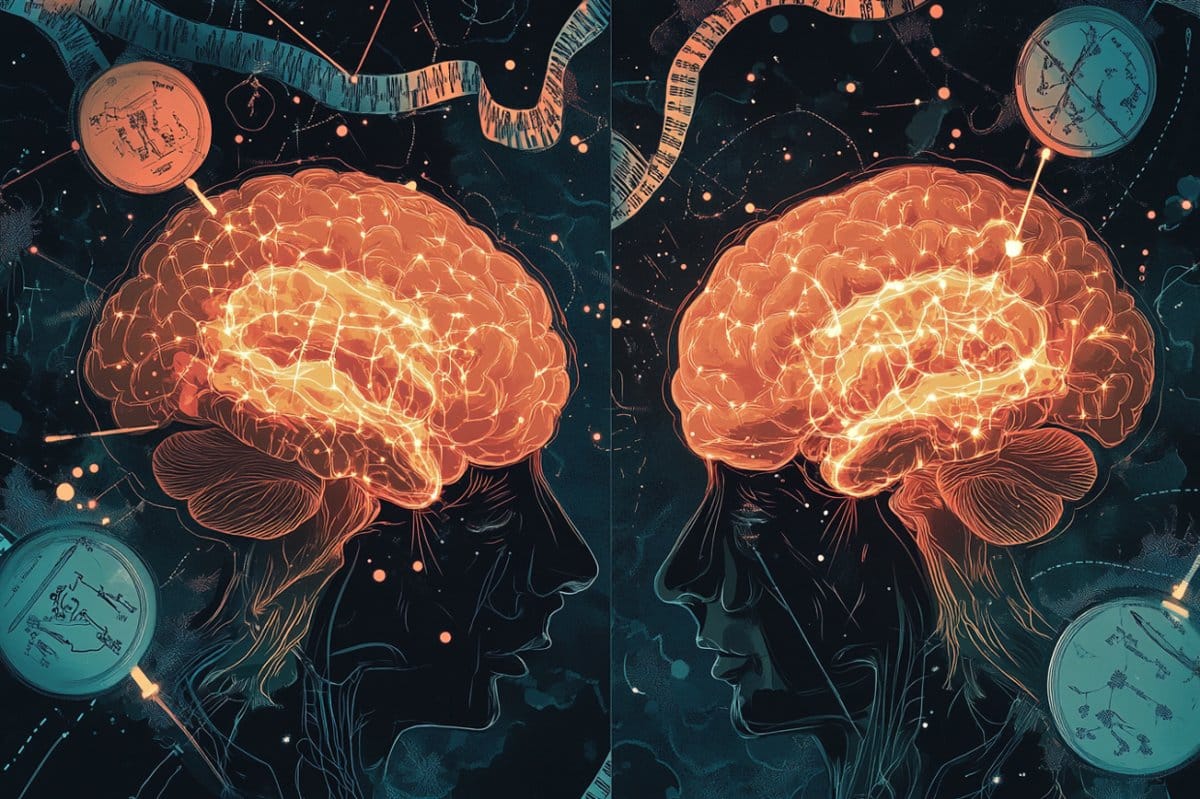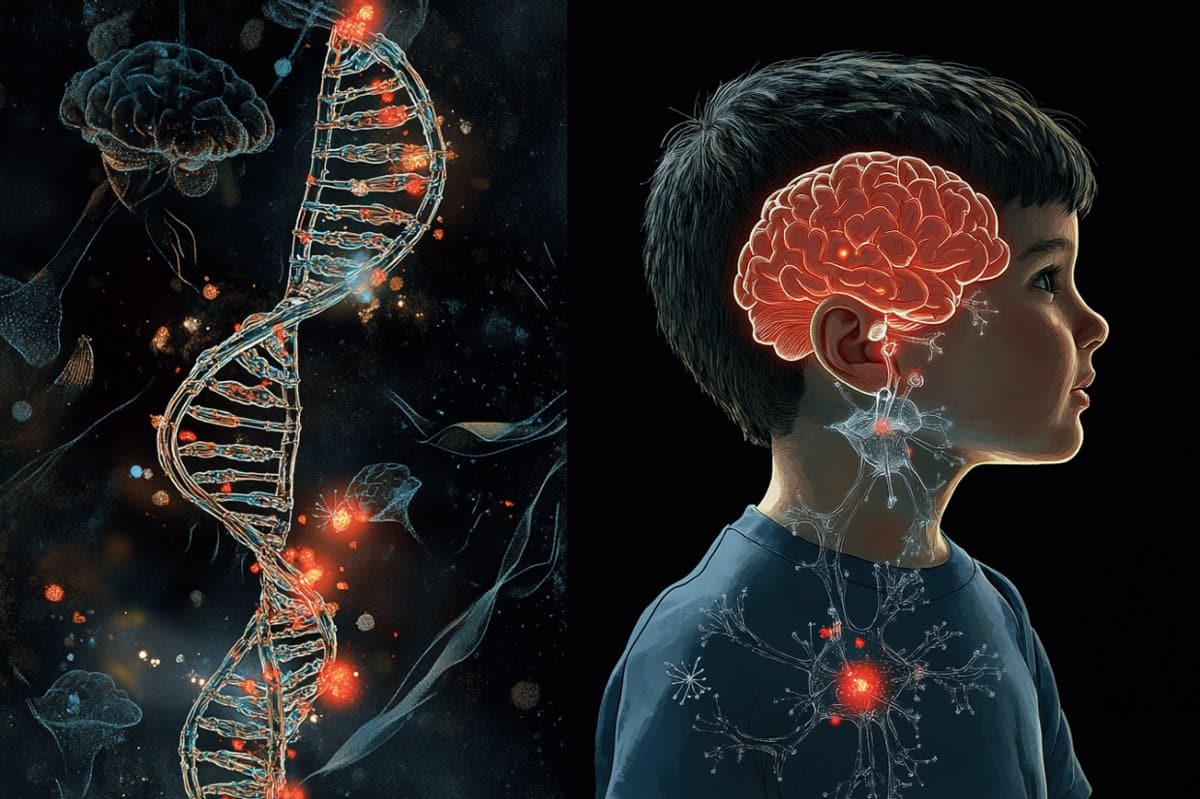Summary: A new study reveals that people with anxiety or depression often underestimate their abilities due to a distorted metacognitive process. Even when they perform tasks well, they tend to focus on moments of low confidence and ignore times when they felt assured.
This persistent underconfidence can discourage them from trying new challenges, despite being capable. However, the study also found that positive, external feedback can help recalibrate their self-perception and break the cycle of self-doubt.
Key Facts:
- Underconfidence Bias: People with anxiety and depression focus on low-confidence moments, even after good performance.
- Metacognitive Distortion: These individuals misjudge their overall ability due to incorrect self-assessment.
- Power of Feedback: External positive feedback helps them update their self-perception more accurately.
Source: University of Copenhagen
Imagine you start a new job. You’re thrown into new tasks that require you to learn new skills. As you progress, you start to develop a sense that you’re good at your job – a sense of confidence in your performance.
Or maybe you’re one of those people who continues to doubt your own abilities even though you perform well time and time again. Maybe you’re even afraid that one day your boss or colleagues will start thinking that you are incapable of doing the things you need to do at work – the so-called imposter syndrome.
The ability to reflect on ourselves and our capabilities is called metacognition. However, some people’s metacognitive processes lead to a distorted view of their own capabilities.
‘People with anxiety and depression tend to exhibit persistent underconfidence, as we call it. Their skewed judgement of their own abilities can lead them to avoid new tasks, even when they can do them,’ explains Sucharit Katyal, postdoc at the Department of Psychology at the University of Copenhagen.
Digital fruits reveal trend
In a new study, Sucharit Katyal and colleagues from University College London have identified the psychological mechanisms underlying persistent underconfidence.
‘We recruited a large number of volunteers via a web-based platform and measured their symptoms of anxiety and depression. We then asked participants to complete a computer game where they had to help the residents of ‘Fruitville’ in harvesting fruit,’ explains Sucharit Katyal.
The participants had to use both their visual and memory skills to complete the tasks. After each individual task, they had to report how confident they felt in their answer. Finally, they had to rate how well they felt they had completed the entire game.
‘Here we discovered that participants with symptoms of anxiety and depression often ignored the times when they felt a high sense of confidence in their answers. Instead, they focused on situations where their answers were accompanied by low confidence when judging their overall performance,’ says Sucharit Katyal.
Positive feedback works
In other words, the study shows that people with anxiety and depression may satisfactorily perform tasks – but ultimately are not updating their self-perception correctly.
‘This points to the need for interventions that specifically address metacognitive distortions in people with anxiety and depression,’ says Sucharit Katyal.
Interestingly, the study also shows that people with persistent insecurity in their abilities can correctly update their self-perception when they are explicitly told that they have performed well – rather than them having to rely on their own confidence assessments in those abilities.
‘It is actually effective to have these persistently insecure people focus more on their successes and less on their internal insecurities,’ says Sucharit Katyal and elaborates:
‘This emphasises the importance of positive feedback. Some people need help to take their own judgements with a grain of salt – otherwise they will just maintain a distorted, negative view of their own capabilities,’ he notes.
About this anxiety and self-perception research news
Author: Simon Knokgaard Halskov
Source: University of Copenhagen
Contact: Simon Knokgaard Halskov – University of Copenhagen
Image: The image is credited to Neuroscience News
Original Research: Open access.
“Distorted learning from local metacognition supports transdiagnostic underconfidence” by Sucharit Katyal et al. Nature Communications
Abstract
Distorted learning from local metacognition supports transdiagnostic underconfidence
Individuals experiencing symptoms of anxiety and depression have been shown to exhibit persistent underconfidence.
The origin of such metacognitive biases presents a puzzle, given that individuals should be able to learn appropriate levels of confidence from observing their own performance.
In two large general population samples (N = 230 and N = 278), we measure both ‘local’ confidence in individual task instances and ‘global’ confidence as longer-run self-performance estimates while manipulating external feedback.
Global confidence is sensitive to both local confidence and feedback valence—more frequent positive (negative) feedback increases (respectively decreases) global confidence, with asymmetries in feedback also leading to shifts in affective self-beliefs.
Notably, however, global confidence exhibits reduced sensitivity to instances of higher local confidence in individuals with greater subclinical anxious-depression symptomatology, despite sensitivity to feedback valence remaining intact.
Our finding of blunted sensitivity to increases in local confidence offers a mechanistic basis for how persistent underconfidence is maintained in the face of intact performance.





